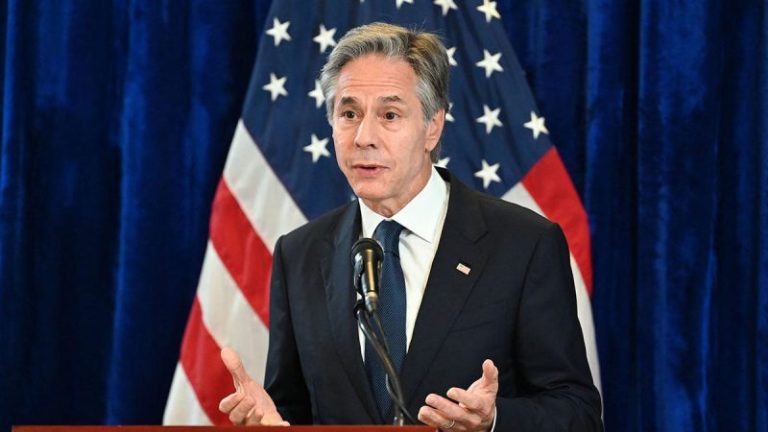Investor Insight
CoTec Holdings (CoTec) is a resource extraction and processing company that identifies and deploys breakthrough technologies to turn undervalued assets into high-margin businesses. By combining innovation with strategic execution, the company offers a unique investment opportunity, characterized by low cost, lower capex, faster cash flow generation, and superior returns.
Overview
CoTec (TSXV:CTH,OTCQB:CTHCF) applies innovative, disruptive technology to undervalued resource assets, aiming to create a portfolio of 20 to 30 modular “mini-mines” or processing facilities. By focusing on strategic minerals — such as rare earths, copper and iron ore — critical to advanced manufacturing, defense, AI and electrification, the company transforms waste materials into valuable strategic commodities. This approach establishes the potential for high-margin revenue streams and positions CoTec for continued growth.
Through investments and efficient processing methods, CoTec targets areas like rare earth magnet recycling, green steel production and copper waste processing — sectors crucial to today’s evolving economies. For investors, this represents a straightforward opportunity to support a forward-thinking company poised for long-term appreciation.
CoTec is advancing six cutting-edge technologies and three strategic assets, with a medium-term goal of acquiring 10 technologies and 20 to 30 assets. The company’s business model is supported by partnerships, joint ventures (JVs), and a disciplined capital management strategy to unlock value across its portfolio.
CoTec is guided by a highly experienced management team and board of directors with deep expertise in mining, technology and corporate finance.
Why Invest in CoTec?
Investors looking for a high-potential opportunity with strong alignment to global trends in sustainability and technology will find CoTec an attractive choice. Here’s why:
- Significant Upside Potential: CoTec’s innovative approach to deploying cutting-edge, disruptive technologies across undervalued and waste assets creates a scalable business model. By targeting sectors of strategic importance such as rare earth magnet recycling, green steel production, and copper waste processing, CoTec aligns with critical global trends that ensure relevance and growth.
- Strategic Positioning: The company is well-positioned in sectors that are increasingly recognized as strategic priorities, with the application of rare earths and other critical minerals in artificial intelligence, renewable energy and defense.
- Experienced Leadership and Insider Confidence: With a leadership team boasting decades of experience in the resource sector and significant insider ownership (approximately 74 percent of the company is owned by management and insiders), CoTec’s leadership is deeply invested in the company’s success.
- Environmental Responsibility: CoTec’s focus on low-carbon resource extraction technologies not only aligns with global sustainability goals but also enables investors to generate financial returns while contributing to environmental stewardship.
- Catalysts for Growth: The company has a clear roadmap with multiple catalysts in the near term, which may include studies, expansions and potential funding announcements, which are expected to unlock further value for shareholders.*
Company Highlights
- CoTec deploys cutting-edge, low-carbon technologies to marginal assets, reclamation opportunities and recycling initiatives, transforming waste materials into strategic, high-value commodities.
- The company holds stakes in six groundbreaking technologies — HyProMag, Binding Solutions, MagIron, Ceibo, WaveCrackerTM, and Salter. These technologies are designed to unlock significant value across strategically chosen assets. The Lac Jeannine iron project in Quebec, with an after tax NPV of US$59.9 million, stands on its own merits but could see further economic and environmental enhancements through the application of CoTec’s technologies. Similarly, HyProMag USA is pioneering the rollout of HyProMag’s rare earth recycling technology in the United States, delivering low-cost, magnet-to-magnet recovery of rare earth sintered magnets.
- CoTec accelerates the transition from discovery to production through proprietary technologies and strategic joint ventures, enabling significantly faster revenue generation compared to traditional mining operations.
- Backed by a management team with extensive expertise in mining, finance and technology, CoTec is uniquely positioned to drive innovation and growth in the critical minerals sector.
- Approximately 74 percent of the company is owned by management and insiders, demonstrating the leadership’s strong commitment to the company’s success.
- Although CoTec is trading at an ~88 percent discount to its Net Asset Value, various near-term catalysts have the potential to reduce this valuation gap
Key Technologies and Assets
HyProMag USA Project
The HPMS process enables magnet-to-magnet short-loop recycling to produce domestically sourced recycled rare earth magnets with a very low cost, and lowest CO2 footprint, bypassing the extensive chemical refining and reprocessing of traditional long-loop processes. HPMS uses 88 percent less energy, 85 percent less water and reduces CO2 by 85 percent. It eliminates complex separation stages, reduces material losses, and lowers operational risk. This streamlined approach is faster, more economical, and strategically critical for the U.S., ensuring self-sufficiency in AI, robotics, and defense, where reliance on Chinese rare earths poses a major geopolitical risk.
HyProMag USA, a US Government Minerals Security Partnership Project, leverages the Hydrogen Processing of Magnetic Scrap (HPMS) technology to recover NdFeB magnets from end-of-life electronics and industrial waste. This revolutionary hydrogen-based recycling process provides a much simpler, lower-risk, and more cost-effective alternative to conventional rare earth extraction, reducing reliance on traditional mining and imports. Over US$100 million was spent on R&D, developed by the University of Birmingham over 15 years.
A feasibility study released in November 2024, underscored the HyProMag USA project potential to become a game-changing domestic source of recycled rare earth magnets for the United States. CoTec, which owns 60.3 percent of HyProMag USA (50 percent through the US JV with Maginito, and CoTec’s 20.3 percent equity ownership in Maginito), is targeting a total annual production capacity of 1,041 tons of recycled NdFeB magnets over a 40-year operating life, post-tax net present value (NPV) of US$262 million at current market prices, increasing to US$503 million at independent forecast prices. HyProMag USA is targeting 10 percent of USA’s domestic demand for NdFeB magnets within five years of commissioning, with three plants targeting ~3,000 tons of recycled NdFeB magnets, which is three times what was contemplated in the November 2024 feasibility study.
By tapping into the United States’ push for domestically sourced critical mineral resources, HyProMag USA will position itself as a pivotal player in reshaping the permanent magnet supply chain, providing investors with an opportunity to align with a project at the intersection of sustainability, innovation and economic growth.
Lac Jeannine Iron Project
Located in Quebec, the Lac Jeannine Project is an advanced-stage iron tailings project with a published Preliminary Economic Assessment (PEA – preliminary economic assessment). The project involves reprocessing approximately 73 million tonnes (Mt) of tailings to produce high-purity iron concentrate. The PEA incorporated the 2023 drill-program, providing an initial Inferred Mineral Resource of approximately 73 Mt at 6.7 percent total Fe for 4.9 Mt of contained total Fe. Though the PEA is based on an initial 10-year life of mine, estimates are the life of mine could be extended by as much as a further 10 years with further drilling and resource definition during the feasibility study in 2025. Based on open-pit extraction methods and the production of a gravity concentrate via conventional processing techniques and at a discount rate of 7 percent (based solely on an initial 10-year life of mine), the PEA indicated a pre-tax NPV of US$93.6 million, and an IRR of 38 percent, and an after tax NPV of US$59.5 million, and an IRR of 30 percent.
The Independent Qualified Person as defined by NI 43-101 for the Lac Jeannine Mineral Resource, Mr. Christian Beaulieu, P.Geo., is a member of l’Ordre des géologues du Québec (#1072). The Qualified Person has reviewed and approved the scientific and technical content relating to the Lac Jeannine Mineral Resource.
MagIron
MagIron focuses on restarting a brownfield iron ore concentrator in Minnesota to produce DR-grade iron concentrate for low-carbon steel production. The company is targeting production capacity of 2 to 3 Mt of concentrate annually with an operational life exceeding 20 years. MagIron is positioned to capitalize on the demand for U.S.-based green steel, with preliminary valuations showing significant uplift since CoTec’s initial investment. CoTec has a 16 percent equity interest in MagIron.
Binding Solutions (BSL)
BSL’s cold agglomeration technology converts mining waste into ISO-compliant pellets or briquettes, primarily for green steel production. This process is a game-changer in the industry, offering substantial reductions in energy use and emissions. CoTec’s equity in BSL has grown significantly in value, with the most recent valuation of the company exceeding US$158 million, a 107 percent increase from CoTec’s initial investment.
Ceibo
Ceibo’s low-carbon, low-cost oxidative heap leaching technology enhances recovery rates for sulphide copper minerals such as chalcopyrite. The technology potentially improves copper recovery from 30 percent to 80 percent, making it a potential industry-leading solution for copper extraction. CoTec has a seat on Ceibo’s technical advisory board along with its minority equity interest, and is identifying copper assets where the technology could be applied in the form of a joint venture.
WaveCrackerTM
CoTec has entered into a joint collaboration and investigation agreement with McGill University, Québec, Canada. The project, WaveCrackerTM, will investigate extended applications of microwave technologies aiming to improve low-carbon, economic recovery of valuable metals from a range of mineral targets. The initial focus will be on copper recoveries, particularly in advanced sulphide leaching applications. This collaboration builds upon, and extends, domain knowledge with new learnings and, in combination with other technologies, offers the potential for the low-carbon, low cost production of “new” copper metal.
As part of the project collaboration, CoTec will leverage McGill’s considerable experience in mineral processing and depth of research knowledge in the field of applied microwave technologies over the last 30 years.
Salter Cyclones
CoTec has signed a binding long-term exclusivity and collaboration agreement with Salter Cyclones Limited (“Salter”) for the application of its Multi-Gravity Separators (MGS) technology for the recovery of iron ore and manganese from both primary mining and tailings material.
Salter’s MGS technology was originally developed in the 1980s by Richard Mozley and has been in operation for many years applied to the recovery of valuable metal minerals (tin, chromium, copper, zinc etc). Its application to bulk commodities such as iron and manganese has been limited.
CoTec believes the technology could represent a step change in the bulk handling of iron and manganese tailings, offering the company the opportunity to produce high grade critical mineral iron and manganese concentrates from ultra fine tailings, material which is currently classified as waste and sent directly to tailings storage facilities.
As part of the collaboration CoTec will have an Exclusivity Period for the application of the MGS to iron ore globally and manganese in the United States, South Africa and Brazil for three (3) years. This Exclusivity Period can be extended by achieving certain milestones. CoTec and Salter will actively collaborate on an asset-by-asset basis to apply the technology to identified iron and manganese assets.
Management & Leadership
Julian Treger – CEO
With over three decades of experience in natural resources and finance, Julian Treger is the driving force behind CoTec’s innovative approach to resource extraction. Previously the CEO of Anglo Pacific Group, Treger successfully transitioned the company from a coal-focused royalty business to a battery-metals-focused streaming company, growing its income from £3 million in 2013 to nearly £62 million in 2021. Treger also brings significant expertise from his roles at Audley Capital and various board positions across the mining sector.
Lucio Genovese – Chairman
A seasoned executive with more than 30 years of experience in metals and mining, Lucio Genovese has held leadership roles at Glencore and is the CEO of Nage Capital Management in Switzerland. He is also chairman at Ferrexpo and a member of the board of directors of Mantos Copper S.A. and Nevada Copper. His deep industry knowledge and expertise in value creation through joint ventures and operational excellence are pivotal to CoTec’s success.
Tom Albanese
Tom Albanese served as chief executive officer of Rio Tinto from 2007 to 2013 and as chief executive officer and director of Vedanta Resources and Vedanta Limited from 2014 to 2017. He currently serves as lead independent director of Nevada Copper and non-executive director of Franco-Nevada, and was previously on the board of directors of Ivanhoe Mines, Palabora Mining Company and Turquoise Hill Resources. He holds a Master of Science degree in mining engineering and a Bachelor of Science degree in mineral economics both from the University of Alaska Fairbanks.
Robert Harward – Non-executive Director
Robert Harward is a retired United States Navy vice admiral (SEAL) and a former deputy commander of the United States Central Command. He served on the US National Security Council in The White House and led several multi-national special forces commands in Afghanistan and Iraq. He joined Lockheed Martin in 2014 as their chief executive in the UAE and expanded his responsibilities to cover the Middle East, leaving to join Shield AI as executive vice-president for international business development and strategy based in the UAE.
Sharon Fay – Non-executive Director
A global investment industry leader with more than 35 years of experience, Sharon Fay has extensive expertise in corporate responsibility and strategic evaluation, making her instrumental in CoTec’s ESG initiatives and governance.
Margot Naudie – Non-executive Director
Magot Naudie is a seasoned capital markets professional with 25 years of experience as senior portfolio manager for North American and global natural resource portfolios. She has held senior roles at leading multi-billion-dollar asset management firms including TD Asset Management, Marret Asset Management and CPP Investment Board. Naudie is the president of Elephant Capital, and the co-founder of Abaxx Technologies. She sits on a number of public and private company boards. Naudie holds an MBA from Ivey Business School and a BA from McGill University. She is also a chartered financial analyst.
Erez Ichilov – Non-executive Director
With a background in mining, technology and project investments, Erez Ichilov has driven multiple ventures in battery materials, critical minerals and sustainable exploration, aligning well with CoTec’s strategic goals.
John Singleton – COO
John Singleton has more than 25 years of experience in the mining industry, including senior roles at Rio Tinto, De Beers Consolidated Mines and Centamin. His background in corporate development, strategy project evaluation, operations and project development equips CoTec with the expertise necessary for scaling its portfolio of assets and technologies. He is a Fellow of the Royal Geological Society and holds a BSc from the University of Bristol and a MSc in Engineering Geology from Imperial College London.
Abraham Jonker – CFO
Abraham Jonker brings 30 years of financial leadership in the mining industry, with a focus on corporate transactions, equity and debt financing, and strategic growth. He has played a pivotal role in raising over $750 million for mining ventures and has served on the boards of other prominent mining companies.
*Forward-Looking Statements
The information above regarding the Company and its investments which are not historical facts are ‘forward-looking statements’ which involve risks and uncertainties. Since forward- looking statements address future events and conditions, by their very nature, they involve inherent risks and uncertainties. Actual results in each case could differ materially from those currently anticipated in such statements due to known and unknown risks and uncertainties affecting the Company, including, but not limited to: resource and reserve risks; environmental risks and costs; labor costs and shortages; uncertain supply and price fluctuations in materials; increases in energy costs; labor disputes and work stoppages; leasing costs and the availability of equipment; heavy equipment demand and availability; contractor and subcontractor performance issues; worksite safety issues; project delays and cost overruns; extreme weather conditions; and social and transport disruptions. For further details regarding risks and uncertainties facing the Company, please refer to “Risk Factors” in the Company’s filing statement dated April 6, 2022, a copy of which may be found under the Company’s SEDAR+ profile at www.sedarplus.com, and its other public filings. The Company assumes no responsibility to update forward- looking statements in this news release except as required by law. Readers should not place undue reliance on the forward-looking statements and information contained in this news release and are encouraged to read the Company’s continuous disclosure documents which are available on SEDAR+ at www.sedarplus.com.










